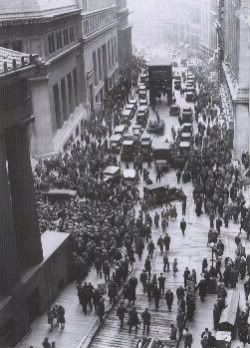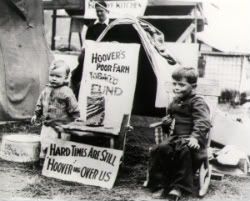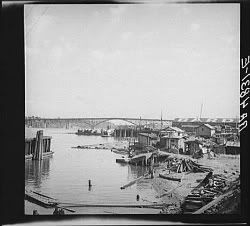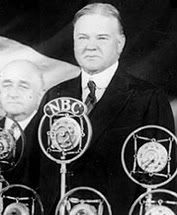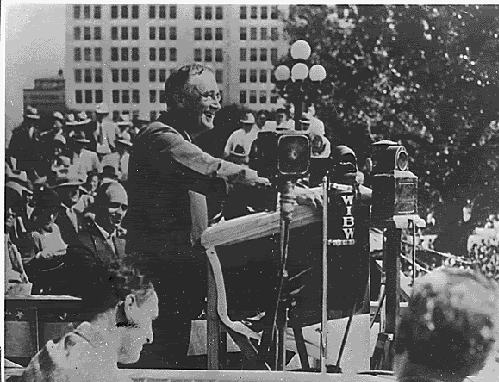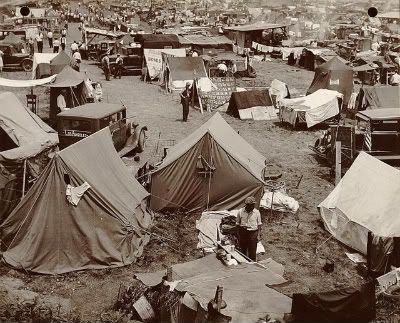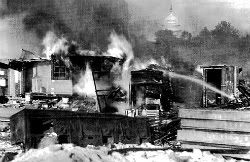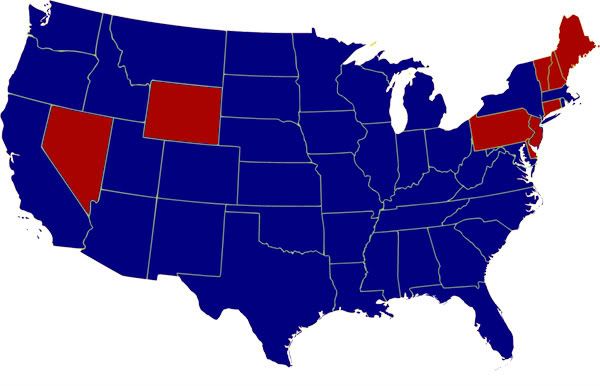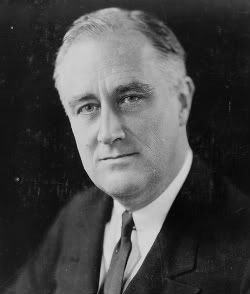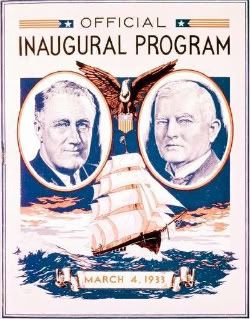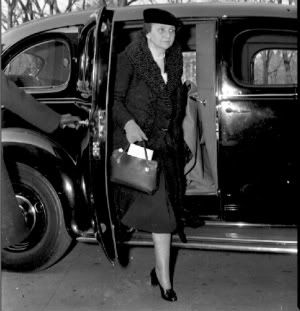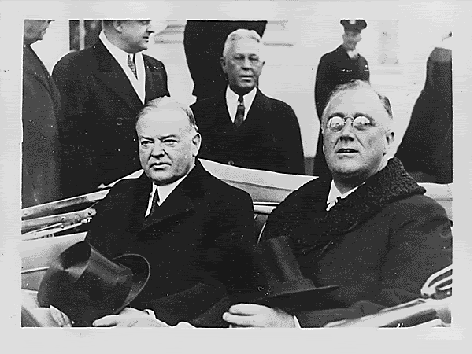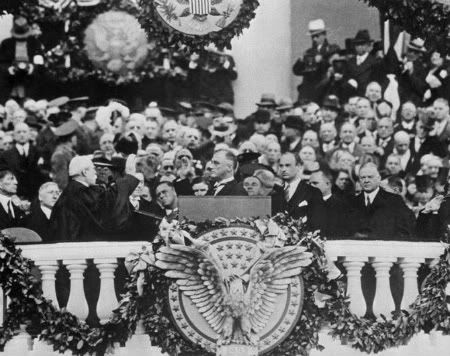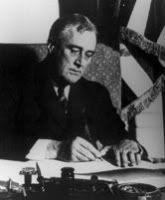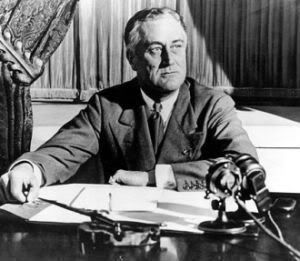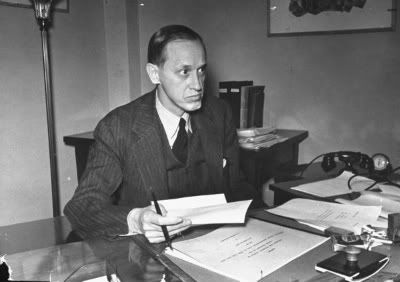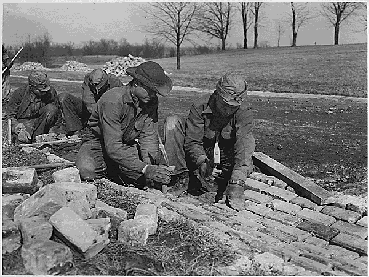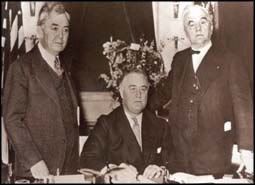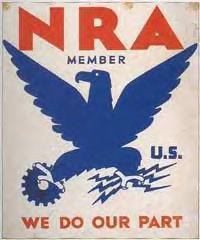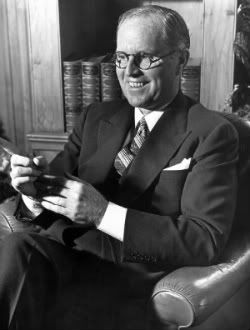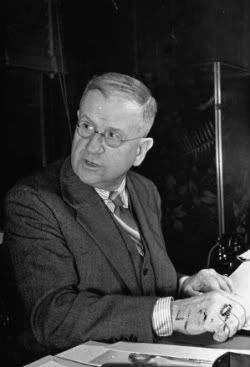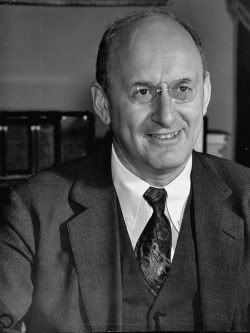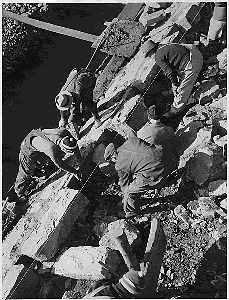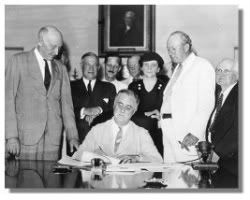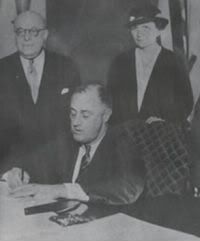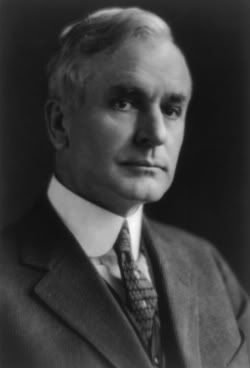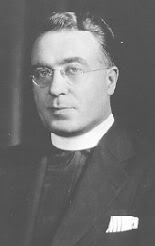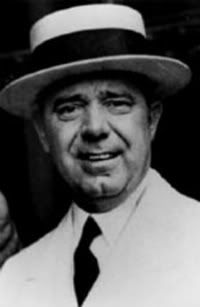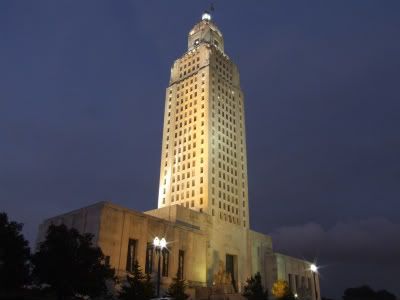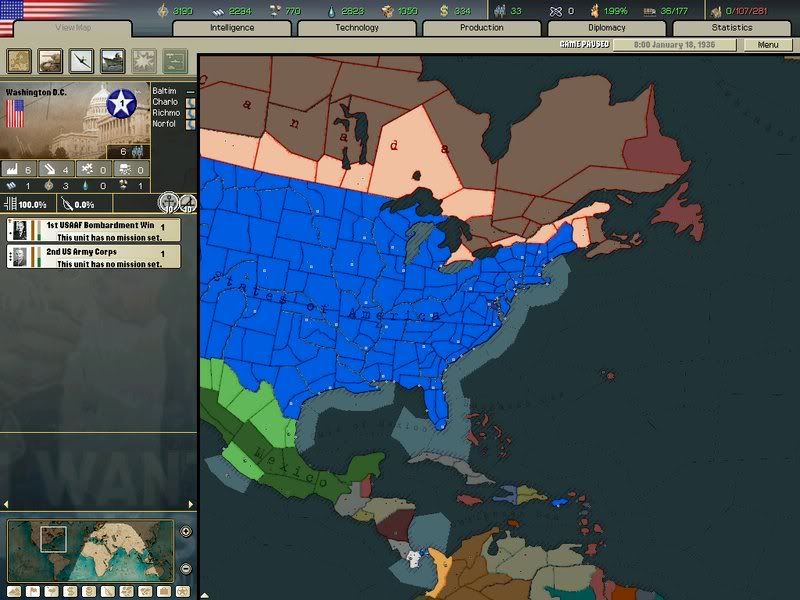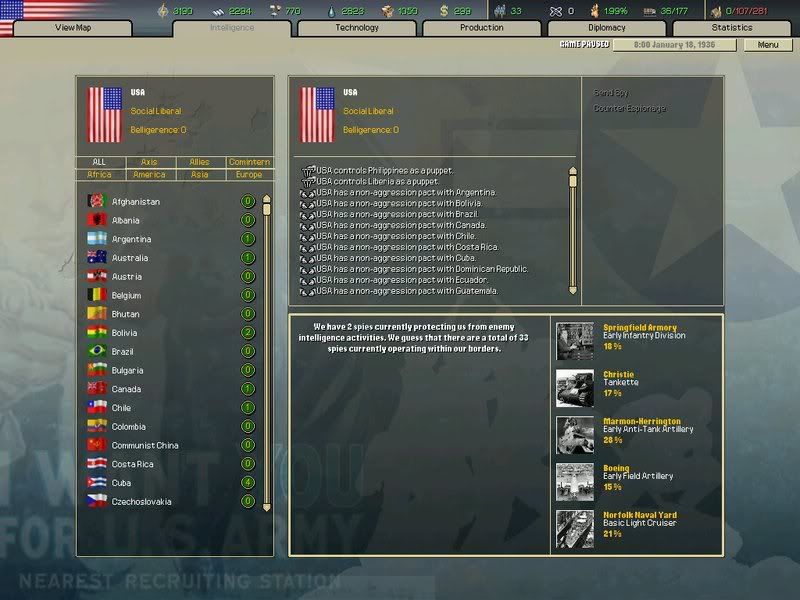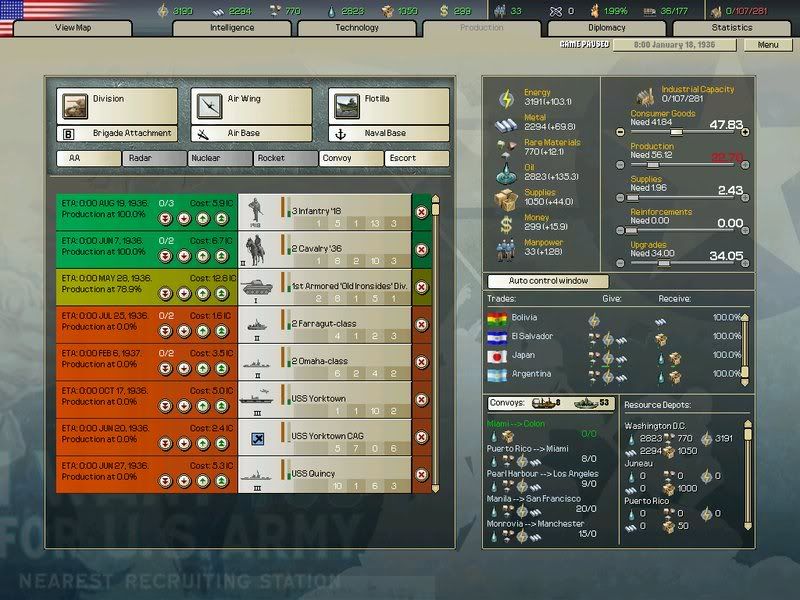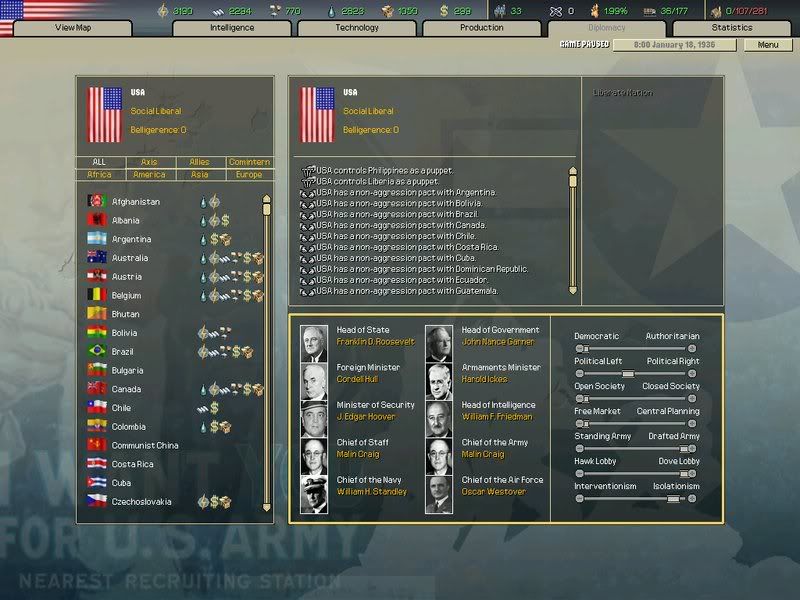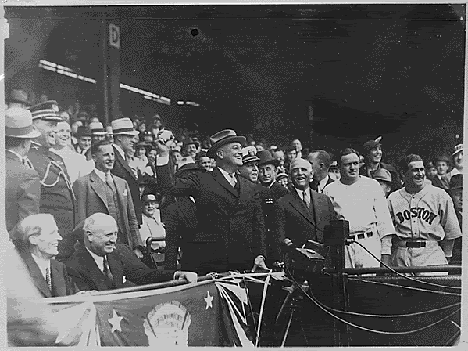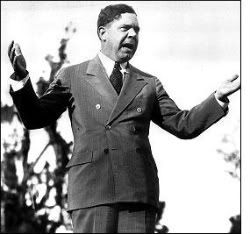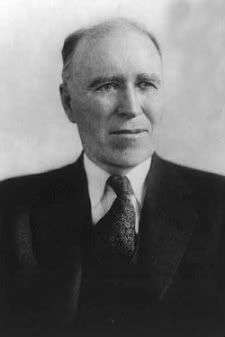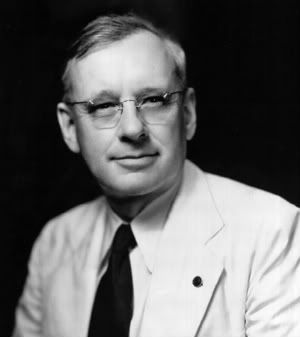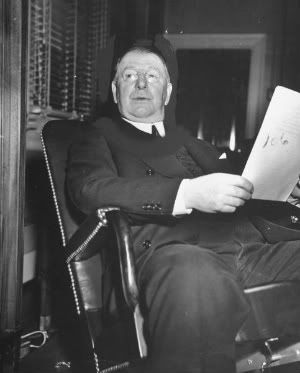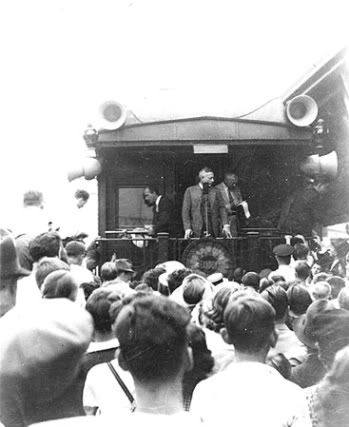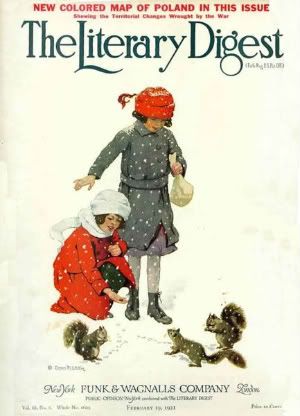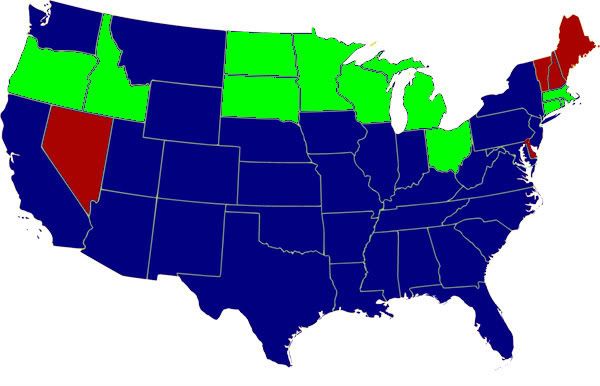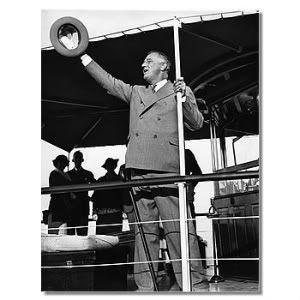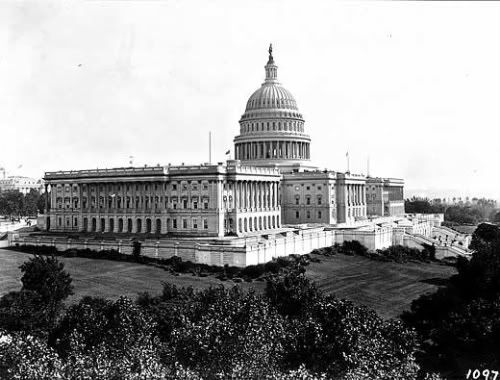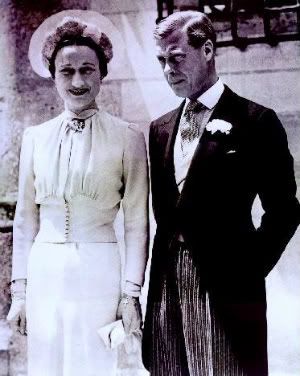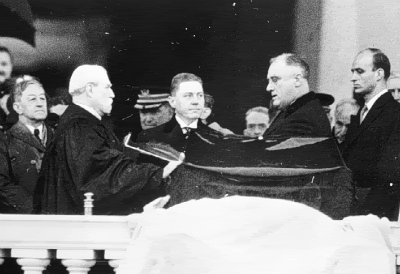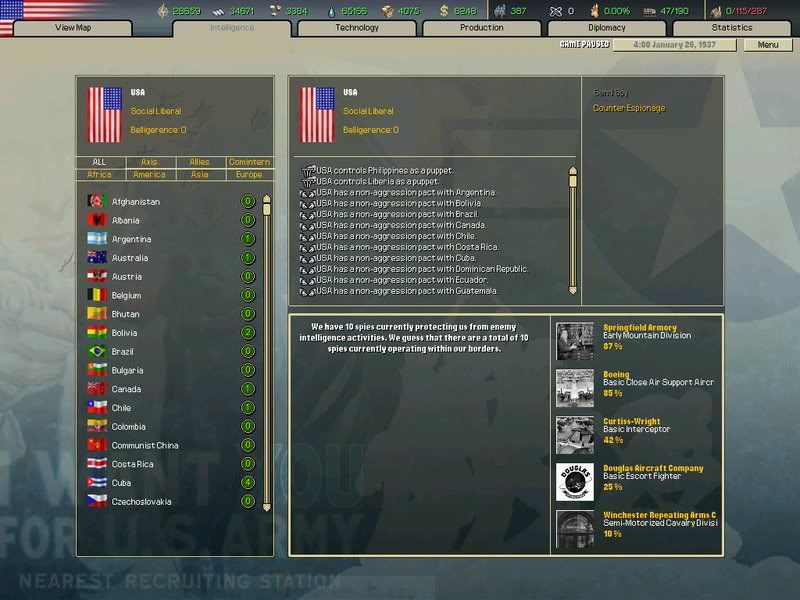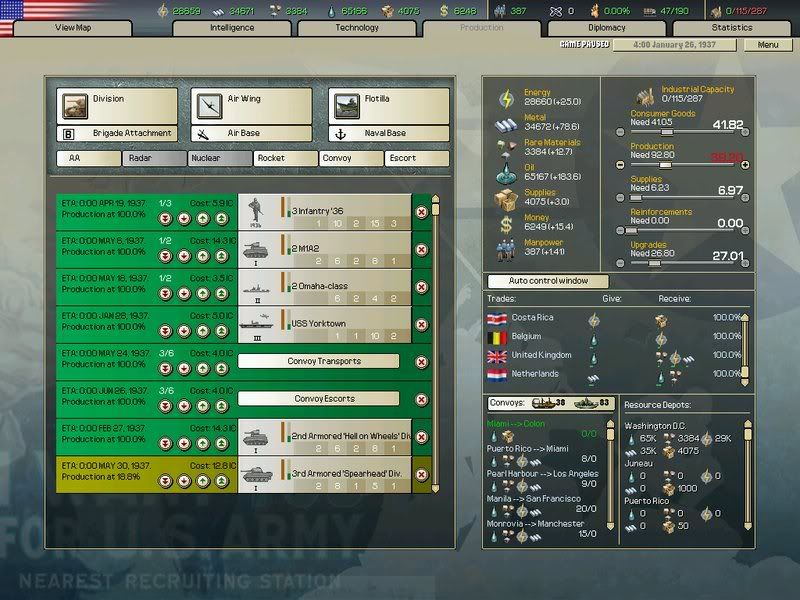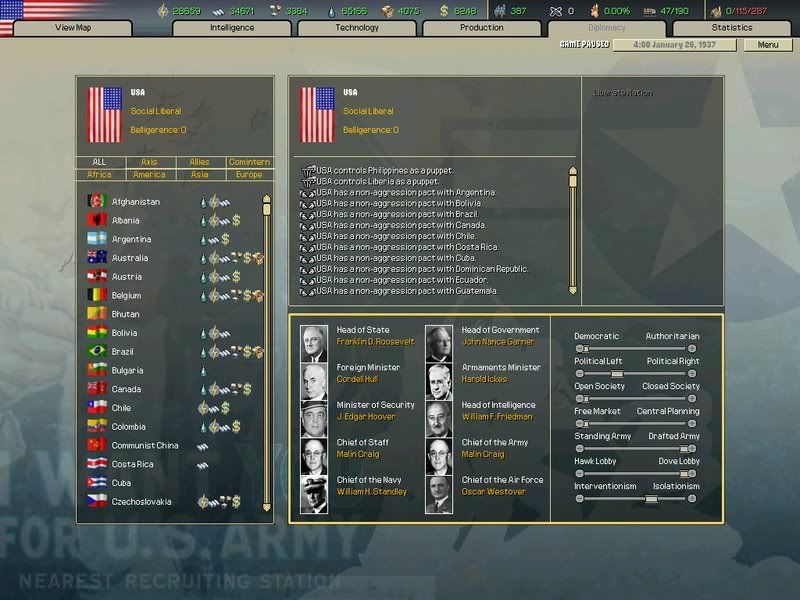Table of Content
31.) Herbert Hoover; Republican (1929-1933) / Page 1
32.) Franklin D. Roosevelt; Democrat (1933-1941) / Pages 1 thru 4
33.) Wendell Willkie; Republican (1941-1944) / Pages 4 thru 7
34.) Arthur Vandenberg; Republican (1944-1945) / Pages 7 thru 8
35.) Thomas E. Dewey; Republican (1945-1953) / Pages 8 thru 13
36.) Adlai Stevenson; Democrat (1953-19??) / Pages 13 thru 14
Complete Coverage of the Presidents (1789-2009) / Pages 14 thru 18
--------------------------------------------------------------------------
Prologue
After winning a landslide victory in the election of 1924, Republican President Calvin Coolidge of Massachusetts was in a prime position to seek another term in 1928. Tired of the office, he instead chose to step down in March 1929. That left the door open for his highly respected Secretary of Commerce, Herbert Clark Hoover, to step forward. Processing impressive qualifications, he was nominated by the Republicans on the first ballot to carry the banner forward. “In no other land could a boy from a country village,” Hoover observed, “without inheritance or influential friends, look forward with unbounded hope. My whole life has taught me what America means. I am indebted to my country beyond any human power to repay.”
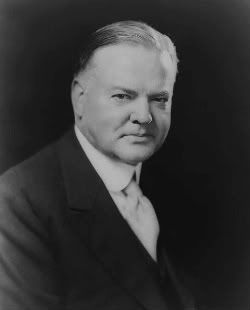
With his running mate – Senate Majority Leader Charles Curtis of Kansas – by his side, Hoover micromanaged his campaign against the Democratic duo of New York Governor Al Smith and Arkansas Senator Joseph T. Robinson. The first Roman Catholic to be a major Presidential candidate, Smith struggled in an uphill battle against religious suspicion and his Tammany Hall association. As for Hoover, all he had to do was to ride the wave of economic prosperity that dominated the 1920s. He also relied on his solid reputation as the Great Humanitarian who tirelessly kept Europe fed during the Great War and afterwards. On November 6th, the man hailing from California was overwhelmingly elected the thirty-first President of the United States.
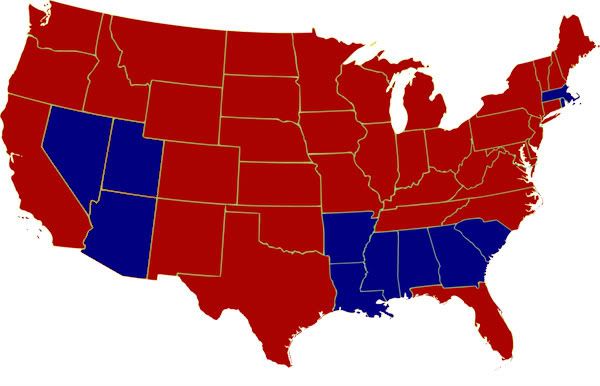
Hoover/Curtis (Republican/Red) – 434 Electoral Votes – 37 States Carried – 21,411,044 Popular Votes – 58.17% of Total Votes
Smith/Robinson (Democratic/Blue) – 97 Electoral Votes – 11 States Carried – 15,031,543 Popular Votes – 40.84% of Total Votes
On March 4th, 1929, Hoover was sworn in as the new President by Chief Justice William Howard Taft. During his first inaugural address, Coolidge’s fifty-four-year-old successor laid out his vision of the next four years. He was particularly articulate in his opinion of the relationship between government and business:
“The election has again confirmed the determination of the American people that regulation of private enterprise and not Government ownership or operation is the course rightly to be pursued in our relation to business. In recent years we have established a differentiation in the whole method of business regulation between the industries which produce and distribute commodities on the one hand and public utilities on the other. In the former, our laws insist upon effective competition; in the latter, because we substantially confer a monopoly by limiting competition, we must regulate their services and rates. The rigid enforcement of the laws applicable to both groups is the very base of equal opportunity and freedom from domination for all our people, and it is just as essential for the stability and prosperity of business itself as for the protection of the public at large. Such regulation should be extended by the Federal Government within the limitations of the Constitution and only when the individual States are without power to protect their citizens through their own authority. On the other hand, we should be fearless when the authority rests only in the Federal Government.”
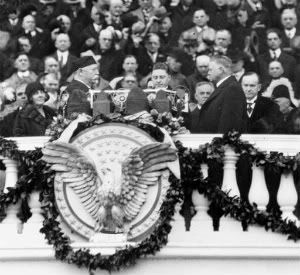
Seven months into his Presidency, Hoover would be sorely tested.
31.) Herbert Hoover; Republican (1929-1933) / Page 1
32.) Franklin D. Roosevelt; Democrat (1933-1941) / Pages 1 thru 4
33.) Wendell Willkie; Republican (1941-1944) / Pages 4 thru 7
34.) Arthur Vandenberg; Republican (1944-1945) / Pages 7 thru 8
35.) Thomas E. Dewey; Republican (1945-1953) / Pages 8 thru 13
36.) Adlai Stevenson; Democrat (1953-19??) / Pages 13 thru 14
Complete Coverage of the Presidents (1789-2009) / Pages 14 thru 18
--------------------------------------------------------------------------
Prologue
After winning a landslide victory in the election of 1924, Republican President Calvin Coolidge of Massachusetts was in a prime position to seek another term in 1928. Tired of the office, he instead chose to step down in March 1929. That left the door open for his highly respected Secretary of Commerce, Herbert Clark Hoover, to step forward. Processing impressive qualifications, he was nominated by the Republicans on the first ballot to carry the banner forward. “In no other land could a boy from a country village,” Hoover observed, “without inheritance or influential friends, look forward with unbounded hope. My whole life has taught me what America means. I am indebted to my country beyond any human power to repay.”

With his running mate – Senate Majority Leader Charles Curtis of Kansas – by his side, Hoover micromanaged his campaign against the Democratic duo of New York Governor Al Smith and Arkansas Senator Joseph T. Robinson. The first Roman Catholic to be a major Presidential candidate, Smith struggled in an uphill battle against religious suspicion and his Tammany Hall association. As for Hoover, all he had to do was to ride the wave of economic prosperity that dominated the 1920s. He also relied on his solid reputation as the Great Humanitarian who tirelessly kept Europe fed during the Great War and afterwards. On November 6th, the man hailing from California was overwhelmingly elected the thirty-first President of the United States.

Hoover/Curtis (Republican/Red) – 434 Electoral Votes – 37 States Carried – 21,411,044 Popular Votes – 58.17% of Total Votes
Smith/Robinson (Democratic/Blue) – 97 Electoral Votes – 11 States Carried – 15,031,543 Popular Votes – 40.84% of Total Votes
On March 4th, 1929, Hoover was sworn in as the new President by Chief Justice William Howard Taft. During his first inaugural address, Coolidge’s fifty-four-year-old successor laid out his vision of the next four years. He was particularly articulate in his opinion of the relationship between government and business:
“The election has again confirmed the determination of the American people that regulation of private enterprise and not Government ownership or operation is the course rightly to be pursued in our relation to business. In recent years we have established a differentiation in the whole method of business regulation between the industries which produce and distribute commodities on the one hand and public utilities on the other. In the former, our laws insist upon effective competition; in the latter, because we substantially confer a monopoly by limiting competition, we must regulate their services and rates. The rigid enforcement of the laws applicable to both groups is the very base of equal opportunity and freedom from domination for all our people, and it is just as essential for the stability and prosperity of business itself as for the protection of the public at large. Such regulation should be extended by the Federal Government within the limitations of the Constitution and only when the individual States are without power to protect their citizens through their own authority. On the other hand, we should be fearless when the authority rests only in the Federal Government.”

Seven months into his Presidency, Hoover would be sorely tested.
Last edited:


